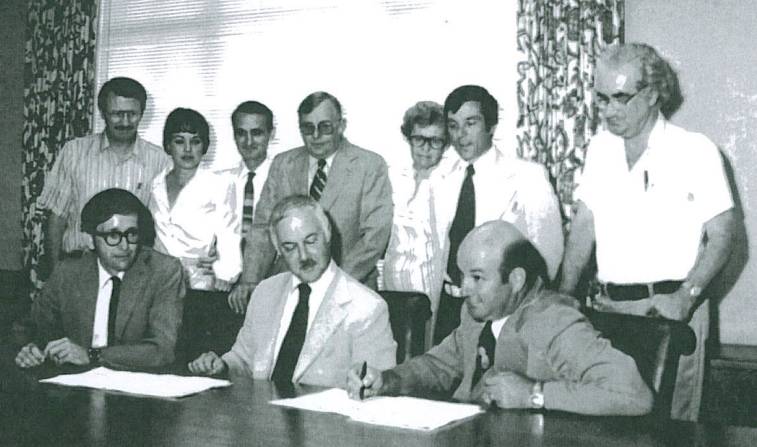
September 1978
The first full Collective Bargaining Agreement
United Faculty Professional Association (AAUP, OEA) and Kent State University
AAUP-KSU’s Full-Time Non-Tenure-Track Collective Bargaining Unit: It’s Been 16 Years!
Chris McVay (English and Pan-African Studies)
Back in 1991, I started a newsletter called pro-fess-ing about non-tenure-track faculty issues. I made it as entertaining and informative as possible and sent it out to all faculty and administrators at Kent State every two weeks. Basically, I was just venting. I had no idea that it would lead to my involvement in organizing a collective bargaining unit. (In 1991, I didn’t even know what a collective bargaining unit was!) Looking back, however, I am convinced that that newsletter, filled with personal anecdotes and opinions by various (and often anonymous) contributors about our impact on higher education, had primed Kent’s so-called “full-time temporary faculty” to vote to unionize and the rest of the university community to accept (and perhaps even welcome) that move. Looking back, too, I can honestly say that being involved in the creation of the first bargaining unit for full-time non-tenure-track faculty in the country was hard work, but it is an accomplishment I am very proud of. There is nothing like a collective bargaining unit to get your non-tenure-track faculty (full- or part-time) a little respect, as well as a little more money and better working conditions.
Read more: The History of the Full-Time Non-Tenure Track Unit
A Brief History of Collective Bargaining at Kent State University
Ken Calkins, Emeritus
The AAUP had a proud tradition at Kent State long before its involvement in collective bargaining. An organization with hundreds of local members, the Association began publishing a detailed annual analysis of faculty salaries at KSU in the 1940's. It was an active supporter of the Faculty Senate. Its Committee W worked hard to improve the position of female colleagues. Its Committee A served as a bulwark of academic freedom at a time when, under the impact of the Cold War, it was far from secure. In the aftermath of May 4, 1970, an AAUP commission produced an important critique of the misguided Portage County Grand Jury report on the tragic events of that day.
